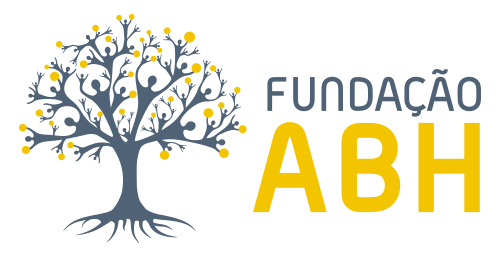
- Home
- Who we are
- Initiatives
- 2023
- 2022
- 2021
- 2020
- 2019
- Acreditar
- Capão’s Citizen Association
- CENEP
- ClareArt Association
- Dreaming Project Institute
- Interference
- Nursery Walk With Love is the Solution
- Organic Outskirts
- Panthers’ Productions Collective
- Sementinha Project (Little Seed) – Year 5
- Stitch to Stitch Collective
- The Story Finders Collective
- Untangle and Don’t Fool Me Collective
- 2018
- 2017
- 2016
- 2015
- 2014
- Partners
- Network and Territory
- Transparency
- Publications
- Make a donation!
Interference
2019The Initiative
Who We Are
The NGO Interference has begun its activities ten years ago, in the neighborhood of Capão Redondo, located in the extreme south region of São Paulo. The project was created based on the writer Ferréz’s dream, founder and manager of the institution, of promoting transformation and social change in the periphery by turning the creative and inspiring universe of the books available. The goal was to create an environment where periphery residents could have access to education and culture beyond school walls.
Nowadays the institution is composed by a big living space, where children can gather together to enjoy the multiplicity of activities going on. Counting with the educators’ accompaniment, school reinforcement is offered, craft, yoga, capoeira, reading and writing classes.
The NGO Interference meets 80 children, aging between 6 and 16 years, offering activities from Monday to Friday, in two different shifts, from 8 AM to 12 PM and from 1 PM to 5 PM.
District
Capão Redondo
The Proposal
The project is composed of an Introduction to Journalism course, offered to 20 youth, ages ranging from 12 to 16 years, regularly registered in the NGO Interference activities.
Background
The region of Capão Redondo needs communication initiatives that depart from the own community, promoting a bigger engagement of their citizens, therefore, better informed and protagonists in their search for rights.
The goal is to strengthen the tools of questioning and critical thinking, allowing people to have a better understanding of the news. Informed people can question and check the veracity of the new before passing ahead a fake new, consequently they become more apt to make decisions, to get better opportunities, to vote in a more consciously way between other things…There will be a better validation of the news and the contents that surround the community.
The biggest example of this type of success is the initiative idealized by “Enois Conteúdo”. There were held journalism workshops at the Casa do Zezinho NGO, for youth aged between 17 to 21 years old, during the years of 2012 and 2013. The success of this project was so big that generated other posteriors final products comprising other types of workshops.
How It Works
The course will last for about 3 months, with the printing of a magazine “fanzine” as a final product.
To create it, 10 children of each period (morning and evening) will be selected, according to their affinity and aptitude regarding texts and reading, to create two classes. The lectures will be held twice a week, from 8 AM to 12 PM and from 1 PM to 5 PM, on Tuesdays and Thursdays.
The course will have three modules where the teachings will go from introduction to journalistic texts and news to content production (module 1 – introduction, 12 lectures, 96 hours; module 2 – journalistic text: 8 lectures, 64 hours; module 3 – magazine production: 4 lectures, 32 hours) totalizing 96 hours of lectures for each class.
The content to be produced will cover the social problems faced in the region and how to claim aid or public power rights. It will be presented texts about news and it will be held a discussion within the class, to assess the students’ comprehension about the addressed content. Subsequently, the students will define which topic they will work on in the magazine and which stories (guidelines) will be treated in the production of the texts to be published in the magazine. The educators’ role will be to direct the content to be worked upon and the journalistic way of writing. The themes will be decided solely by the students. The magazine will be produced based on the knowledge and guidelines developed from the texts and classes’ discussions. There will be no field research.
2,500 copies of the magazine will be printed and distributed in the region of Capão Redondo during the months of June and July 2019. By the end of the course, on June 2019, 500 copies will be distributed during a capoeira presentation that will take place in the previous NGO location (Travessa Santiago). In July 1,000 copies will be distributed in the schools nearby the Interference NGO: E.E. Euclides da Cunha e E.E. José Olímpio. The last 1,000 copies will be distributed to network partners who work with children and youth from the age of 12, aiming to serve as an example of editorial production and foster the journalistic production.
It will also be made a digital list with the contacts in the region (community partner network, NGOs and whoever is interested in receiving it), for delivery of the news via WhatsApp, in a way supported by this medium. The magazine will also be published in digital format and disseminated in the institution’s website and social media and on partner’s social network.
The goal of this publication will be to disseminate relevant information regarding the region of Capão Redondo and the social problems faced locally, using a language that residents of the community can understand and act upon. It is also expected from the students to acquire a better comprehension of the published and the read information, so they will become able to question the content of any other publication.
Project Audience

-
Teenagers, young people and adults over 16 years old, in social vulnerability and who are or not in the labor market. Ninety students will be attended directly and 270 family members indirectly, since when changing one’s path, we automatically change lives around.
Objetives of the Investment
- Encourage the production of journalist content by the participant children and youth and evoke knowledge evolution and interest in news subjects.
- Care for the non-avoidance of project students, to ensure a solid content production.
- Strength the questioning tools and critical thinking and help people to have a better comprehension of the news.
- Improve students’ performance in the school. (Portuguese, history, geography).
- Improve the support network to strengthen the activities and the organization.
- Impact and foster the local population’s interest in the social problems and news of the region.
- Increase the number of NGO Interference followers in social media.
- Engage the community to be the protagonist of the improvements the Interference NGO seeks for the community.















